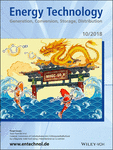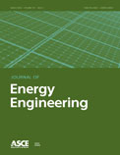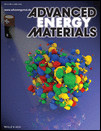
Energy Technology
Scope & Guideline
Driving Progress in Energy Efficiency and Sustainability
Introduction
Aims and Scopes
- Renewable Energy Technologies:
The journal emphasizes the development and optimization of renewable energy technologies, including solar, wind, and bioenergy systems. It explores novel materials and methodologies that enhance energy efficiency and sustainability. - Energy Storage Solutions:
Research on advanced energy storage systems, such as batteries, supercapacitors, and hybrid systems, is a core focus. This includes materials science innovations, electrochemical performance, and lifecycle assessments. - Energy Conversion Processes:
Studies on thermochemical and electrochemical energy conversion processes are prevalent, with an emphasis on improving efficiency and reducing environmental impact through innovative catalysts and reactors. - Smart Energy Systems:
The integration of smart technologies in energy management systems, including microgrids and energy management strategies for electric vehicles, is a significant area of interest. - Sustainability and Environmental Impact:
Research that evaluates the environmental impacts of energy technologies, including lifecycle assessments and sustainable practices in energy production, is crucial to the journal's mission. - Advanced Materials for Energy Applications:
The journal publishes studies on new materials, including nanomaterials and composites, that enhance the performance of energy systems, such as electrodes for batteries and catalysts for fuel cells.
Trending and Emerging
- Electrochemical Energy Storage:
Research on advanced battery technologies, particularly lithium-ion and sodium-ion batteries, is increasingly prominent. This includes new materials, recycling methods, and performance optimization strategies. - Smart Grids and Energy Management:
There is growing interest in the development of smart grid technologies and energy management systems that leverage data analytics and machine learning for optimized energy distribution and consumption. - Hydrogen Economy:
The exploration of hydrogen as a clean energy carrier is gaining momentum, with studies focusing on production, storage, and utilization technologies, including fuel cells and electrolysis. - Photovoltaic Technologies:
Innovations in photovoltaic materials and systems, particularly perovskite solar cells, are trending, emphasizing efficiency improvements and stability under real-world conditions. - Sustainable Materials and Processes:
Research on sustainable materials for energy applications, including biodegradable polymers and biomass-derived materials, is becoming more prominent, aligning with global sustainability goals. - Energy Recovery Systems:
There is an emerging focus on systems that recover and utilize waste energy, such as thermal energy recovery from industrial processes, which reflects a broader interest in improving overall energy efficiency.
Declining or Waning
- Conventional Energy Sources:
There has been a noticeable reduction in publications related to traditional fossil fuel technologies and their optimization, as the focus shifts toward cleaner, renewable energy sources. - Basic Research on Established Technologies:
Research that focuses solely on established technologies without innovative adaptations or improvements is becoming less prevalent, as the journal emphasizes cutting-edge advancements. - Standalone Energy Systems:
There is a waning interest in studies centered around standalone energy systems that do not integrate with smart technologies or hybrid systems, reflecting a trend towards interconnected energy solutions.
Similar Journals

Energy & Environmental Materials
Pioneering Solutions for a Sustainable TomorrowEnergy & Environmental Materials, published by WILEY, is an esteemed academic journal dedicated to pioneering research in the multifaceted domains of energy, environmental science, and materials science. Since its inception in 2018, this journal has rapidly established itself as a leading platform, holding a prestigious Q1 ranking across multiple categories including Renewable Energy, Sustainability, and Waste Management, reflecting its significant contributions to advancing knowledge in these critical areas. With a robust Scopus ranking that positions it in the top percentile for Environmental Science and Materials Science, it caters to a diverse audience of researchers, professionals, and students seeking cutting-edge findings and practical applications in energy efficiency and sustainable materials. This open-access journal facilitates the dissemination of innovative research and aims to bridge the gap between scientific exploration and real-world solutions for a sustainable future. The editorial team encourages submissions that explore both theoretical and practical aspects, ensuring that every publication not only contributes to the academic landscape but also drives impactful change in energy and environmental practices.

Frontiers in Energy
Connecting Researchers to Drive the Energy Revolution.Frontiers in Energy is a distinguished journal published by HIGHER EDUCATION PRESS, focusing on the dynamic and rapidly evolving field of energy engineering and power technology. Established in 2011, the journal serves as a pivotal platform for disseminating innovative research findings and practical applications that address critical challenges in energy systems. With an impressive Q2 ranking in 2023 and a Scopus rank of 81 out of 272 in the discipline, it highlights the journal's influential impact within the academic community, reflecting its commitment to high-quality research. Based in Beijing, China, the journal aims to promote open and accessible scientific discussion, facilitating collaboration among researchers, professionals, and students alike. As an open access publication, Frontiers in Energy ensures that valuable knowledge is readily available to a global audience, effectively contributing to advancements in sustainable energy solutions. Join the forefront of energy innovation by engaging with cutting-edge research that shapes our energy future.

Journal of the Japan Institute of Energy
Empowering Energy Innovation.Journal of the Japan Institute of Energy, ISSN 0916-8753, is a reputable academic journal dedicated to the field of energy studies, reflecting the dynamic and evolving landscape of energy research. Published by the Japan Institute of Energy, the journal serves as a platform for disseminating innovative research, technologies, and methodologies related to energy engineering, renewable energy sources, and sustainability practices. While this journal does not currently offer open access, it remains a vital resource for professionals, researchers, and students alike, particularly those focused on advancing knowledge within Energy Engineering and Power Technology, Fuel Technology, and related areas. As of 2023, it is ranked in the Q4 quartile across several categories in Scopus, which highlights its foundational role in fostering scholarly discourse, despite its lower ranking in the competitive global landscape. Established in 1990 and continuously evolving, the journal provides insights into the challenges and innovations in the energy sector, making it an essential read for anyone invested in the future of energy solutions.

JOURNAL OF ENERGY ENGINEERING
Unveiling the Future of Energy EngineeringJOURNAL OF ENERGY ENGINEERING, published by the ASCE-Amer Soc Civil Engineers, serves as a pivotal resource in the fields of civil and structural engineering, energy engineering, and nuclear energy research. With an ISSN of 0733-9402 and an E-ISSN of 1943-7897, this esteemed journal demonstrates a consistent commitment to advancing knowledge in energy systems, sustainability, and waste management. Ranking within the second quartile in several categories—including Civil and Structural Engineering and Energy Engineering and Power Technology—this journal maintains a strong reputation, underscored by its Scopus rankings that place it in the top tiers of its discipline. Accessible from 1982 through 2024, the journal provides researchers and professionals meaningful insights through rigorously peer-reviewed articles, critical reviews, and case studies that address contemporary challenges in energy utilization and infrastructure development. Without open access options, it ensures the integrity and credibility of published work, showcasing influential research that contributes to sustainable solutions in energy and environmental frameworks. Researchers, professionals, and students alike will find the JOURNAL OF ENERGY ENGINEERING an indispensable platform for exploration and dissemination of innovative ideas within the realm of energy and engineering.

Advances in Energy Research
Advancing Knowledge for a Greener Energy Future.Advances in Energy Research is a prominent journal dedicated to the exploration and advancement of energy technologies and sustainable practices. Published by TECHNO-PRESS, this journal serves as a vital platform for researchers, professionals, and students in the energy field, featuring innovative studies and reviews that contribute to the body of knowledge surrounding energy efficiency, renewable resources, and the integration of new technologies. The journal holds a significant position in energy research and aims to facilitate the dissemination of groundbreaking findings and ideas that are pivotal for the transition toward a more sustainable energy future. Located in South Korea, with an ISSN of 2287-6316, it embraces an open access philosophy that ensures widespread availability of its content, further enhancing its impact in the academic community.

EnergyChem
Leading Research for Tomorrow's Energy Challenges.EnergyChem is a premier academic journal published by ELSEVIER, dedicated to advancing the field of energy chemistry and its applications in sustainable technologies. With a strong focus on biomaterials and innovative chemistry solutions, the journal has established itself as a leading platform within the research community, boasting remarkable rankings such as Q1 in Biomaterials, Chemistry (miscellaneous), and Energy (miscellaneous) for 2023. Notably, it ranks 2nd in both Materials Science and Energy categories, reflecting the high caliber of research it publishes, which is crucial for tackling pressing global energy challenges. Since its inception in 2019, EnergyChem has been committed to open and accessible research, making it an invaluable resource for researchers, professionals, and students striving for cutting-edge insights in energy conversion and storage. With its target audience in mind, the journal encourages submissions that explore innovative materials, processes, and applications that will contribute to a sustainable energy future.

Energy Storage
Advancing Sustainable Energy Through Storage TechnologiesEnergy Storage, published by WILEY, is a pivotal journal dedicated to the rapidly evolving field of energy storage technologies. Since its inception in 2019, the journal has established a significant platform for researchers and professionals by providing insightful articles that explore innovations and advancements in energy engineering and renewable energy systems. With an Impact Factor positioning it in the Q3 category for both Energy Engineering and Power Technology and Renewable Energy, Sustainability, and the Environment, Energy Storage plays a crucial role in disseminating knowledge that addresses global energy challenges. The journal is indexed in Scopus, showcasing its commitment to high-quality research, providing valuable contributions to the community including engaging studies and practical applications aimed at sustainable energy solutions. For those passionate about the future of energy, Energy Storage represents an essential resource for staying informed and connected within this dynamic and interdisciplinary field.

AIMS Energy
Empowering Energy Research for a Sustainable FutureAIMS Energy is a leading academic journal published by the American Institute of Mathematical Sciences (AIMS), dedicated to advancing the field of energy research. With a strong commitment to Open Access since its inception in 2013, this journal offers a platform for researchers, professionals, and students to share innovative findings and enrich the discourse in crucial areas such as Energy Engineering and Power Technology, Fuel Technology, and Renewable Energy, Sustainability and the Environment. Recognized for its quality, AIMS Energy holds a respectable impact with a Q3 ranking in multiple categories as of 2023, and it ranks within the top half of its peers in the Scopus database. The journal's objective is to disseminate high-quality research that addresses contemporary challenges in energy and offers sustainable solutions. By fostering collaboration and discussion among various stakeholders, AIMS Energy plays a critical role in shaping the future of energy technologies and policies.

Advanced Energy Materials
Exploring Breakthroughs in Energy Materials ScienceAdvanced Energy Materials is a leading academic journal published by WILEY-V C H VERLAG GMBH, focusing on the rapidly evolving fields of materials science and renewable energy technologies. With an impressive impact factor and recognition as a top-tier journal, it ranks within the Q1 category in both Materials Science (miscellaneous) and Renewable Energy, Sustainability and the Environment as of 2023. Spanning from 2011 to 2024, the journal serves as an essential platform for researchers, professionals, and students eager to explore groundbreaking advancements in energy materials, fostering innovative solutions to global sustainability challenges. The journal's authoritative content is supported by rigorous peer review, ensuring high-quality research contributes to the academic community and beyond. Located in Weinheim, Germany, Advanced Energy Materials stands at the forefront of scientific inquiry, making it an invaluable resource for those invested in the future of energy and materials science.

INTERNATIONAL JOURNAL OF ENERGY RESEARCH
Connecting scholars to the pulse of energy research.INTERNATIONAL JOURNAL OF ENERGY RESEARCH (ISSN: 0363-907X; E-ISSN: 1099-114X), published by Wiley-Hindawi, stands at the forefront of energy research, offering a scholarly platform pivotal for advancing knowledge in the fields of energy engineering, nuclear energy, fuel technology, and renewable energy systems. With an impressive Q1 and Q2 ranking across several categories as of 2023, this journal reflects a commitment to high-quality, peer-reviewed research that addresses both theoretical and practical challenges in the energy sector. Now an Open Access journal since 2023, it enhances accessibility and dissemination of cutting-edge research to a global audience. Located in the United Kingdom, with an active publication history dating back to 1977, the journal aims to contribute to sustainable energy solutions and innovative technologies. Researchers, professionals, and scholars will find valuable insights and discussions here, bridging gaps in energy research and policy-making.